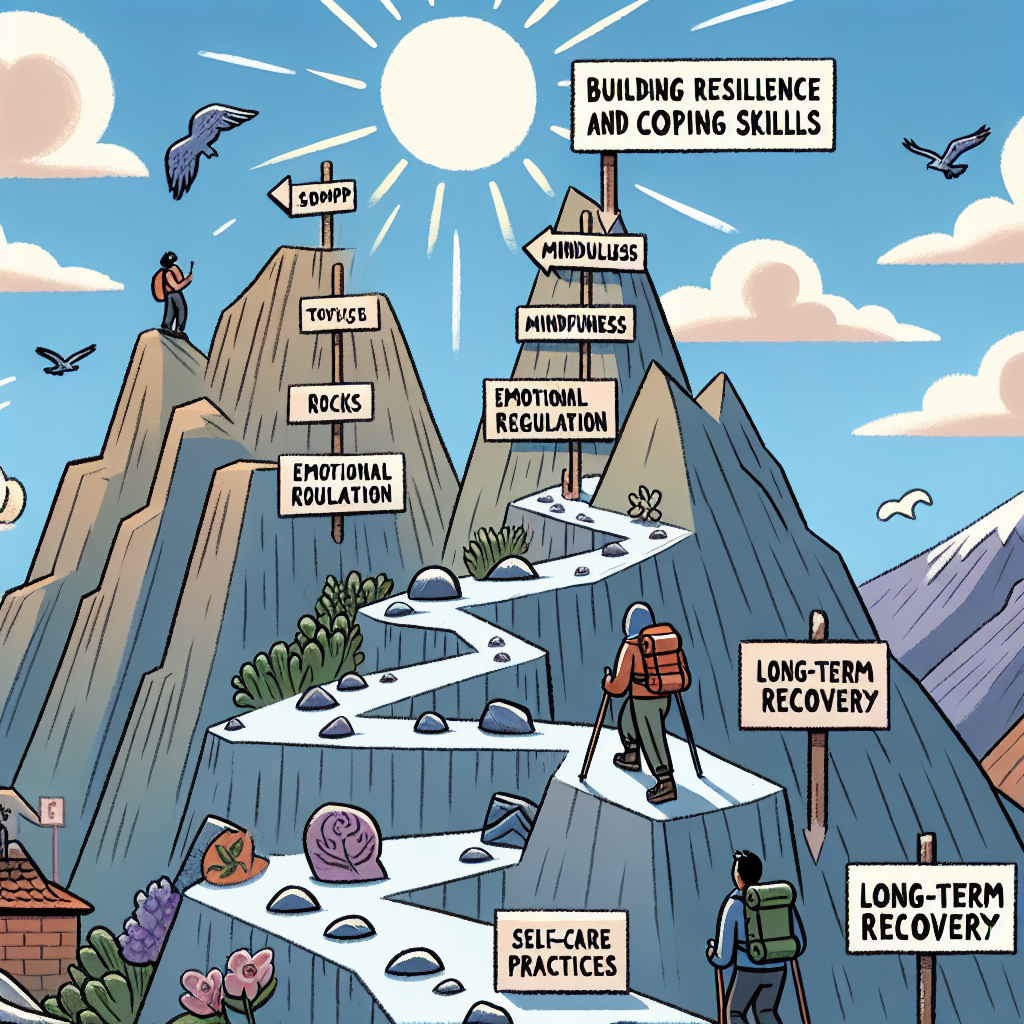-
Table of Contents
“Stay Strong, Stay Free: Prevent Relapse with Cocaine Rehab”
Introduction
Preventing relapse is a critical component of successful cocaine rehabilitation, as it ensures long-term recovery and helps individuals maintain a drug-free lifestyle. Cocaine rehab programs are designed to address the complex nature of addiction, providing comprehensive treatment that includes medical detoxification, behavioral therapy, and support systems. These programs focus on identifying and managing triggers, developing coping strategies, and fostering a supportive environment to reduce the risk of relapse. By equipping individuals with the necessary tools and resources, cocaine rehab aims to empower them to overcome addiction and achieve sustained sobriety.
Effective Strategies for Preventing Relapse After Cocaine Rehab
Preventing relapse after completing a cocaine rehab program is a critical step in the journey toward long-term recovery. While the initial phase of treatment focuses on detoxification and addressing the physical aspects of addiction, the real challenge often begins once an individual leaves the structured environment of a rehab facility. To maintain sobriety and prevent relapse, it is essential to adopt effective strategies that support ongoing recovery and foster a healthy, fulfilling life.
One of the most important strategies for preventing relapse is developing a robust support network. Surrounding oneself with positive influences, such as supportive family members, friends, and peers who understand the challenges of addiction, can provide the encouragement and accountability needed to stay on track. Participating in support groups, such as Narcotics Anonymous (NA) or Cocaine Anonymous (CA), offers a sense of community and shared experience that can be incredibly empowering. These groups provide a safe space to share struggles, celebrate successes, and gain insights from others who have faced similar challenges.
In addition to building a support network, it is crucial to establish a routine that promotes a healthy lifestyle. Regular exercise, balanced nutrition, and adequate sleep are fundamental components of physical and mental well-being. Engaging in physical activities, such as yoga, running, or swimming, can help reduce stress and improve mood, making it easier to resist the temptation to use cocaine. Moreover, maintaining a consistent sleep schedule and eating nutritious meals can enhance overall health and resilience, providing a solid foundation for recovery.
Another effective strategy for preventing relapse is developing coping mechanisms to manage stress and triggers. Identifying the situations, people, or emotions that may lead to cravings is the first step in creating a plan to address them. Techniques such as mindfulness meditation, deep breathing exercises, and journaling can help individuals stay grounded and focused during challenging times. Additionally, seeking professional help from a therapist or counselor can provide valuable tools and strategies for managing stress and avoiding relapse.
Setting realistic goals and celebrating milestones is also essential in maintaining motivation and preventing relapse. Breaking down long-term recovery into smaller, achievable steps can make the process feel more manageable and less overwhelming. Celebrating each milestone, whether it is a week, a month, or a year of sobriety, reinforces the progress made and boosts confidence. Recognizing and rewarding oneself for these achievements can serve as a powerful reminder of the benefits of staying sober.
Furthermore, it is important to stay vigilant and proactive in maintaining sobriety. Regularly attending follow-up appointments with healthcare providers, participating in ongoing therapy sessions, and staying engaged in support groups can help individuals stay connected to their recovery journey. Being aware of the potential for relapse and taking preventive measures, such as avoiding high-risk situations and having a plan in place for dealing with cravings, can significantly reduce the likelihood of returning to cocaine use.
Lastly, finding purpose and meaning in life beyond addiction is a vital component of long-term recovery. Engaging in activities that bring joy and fulfillment, such as pursuing hobbies, volunteering, or furthering education, can provide a sense of purpose and direction. Building a life that is rich and rewarding can help individuals stay focused on their recovery goals and resist the urge to relapse.
In conclusion, preventing relapse after cocaine rehab requires a multifaceted approach that includes building a strong support network, establishing a healthy routine, developing coping mechanisms, setting realistic goals, staying vigilant, and finding purpose in life. By adopting these strategies, individuals can enhance their resilience, maintain their sobriety, and continue on the path to a healthier, more fulfilling life.
Building a Support System to Prevent Relapse Post-Cocaine Rehab
Preventing relapse after completing a cocaine rehab program is a critical step in the journey toward long-term recovery. Building a robust support system is essential in maintaining sobriety and fostering a healthy, drug-free lifestyle. The transition from a structured rehab environment to everyday life can be challenging, but with the right support network, individuals can navigate these difficulties more effectively.
One of the first steps in building a support system is to reconnect with family and friends who are supportive of the recovery process. These relationships can provide emotional stability and encouragement, which are vital during moments of vulnerability. Open communication with loved ones about the challenges faced in recovery can help them understand the journey and offer the necessary support. Additionally, involving family members in therapy sessions can strengthen these bonds and provide a collective approach to overcoming addiction.
Moreover, joining support groups such as Narcotics Anonymous (NA) can be incredibly beneficial. These groups offer a sense of community and understanding, as they consist of individuals who have faced similar struggles. Sharing experiences and coping strategies within these groups can provide invaluable insights and foster a sense of belonging. Regular attendance at meetings can also serve as a reminder of the commitment to sobriety and the progress made thus far.
In addition to personal relationships and support groups, professional counseling and therapy play a crucial role in preventing relapse. Therapists can help individuals develop coping mechanisms to deal with triggers and stressors that may lead to relapse. Cognitive-behavioral therapy (CBT), for instance, is effective in changing negative thought patterns and behaviors associated with addiction. Regular sessions with a therapist can provide ongoing support and guidance, ensuring that individuals remain focused on their recovery goals.
Furthermore, engaging in healthy activities and hobbies can significantly contribute to a successful recovery. Physical exercise, for example, not only improves physical health but also releases endorphins, which can enhance mood and reduce cravings. Pursuing hobbies and interests can provide a sense of purpose and fulfillment, diverting attention away from thoughts of using cocaine. Whether it’s painting, playing a musical instrument, or volunteering, finding activities that bring joy and satisfaction can be a powerful tool in maintaining sobriety.
Another important aspect of building a support system is creating a stable and drug-free living environment. This may involve making significant changes, such as moving to a new location or distancing oneself from individuals who are still using drugs. A safe and supportive home environment can reduce the risk of encountering triggers and temptations, making it easier to stay on the path of recovery.
Additionally, setting realistic goals and celebrating small achievements can boost confidence and motivation. Recovery is a gradual process, and acknowledging progress, no matter how small, can reinforce the commitment to sobriety. Keeping a journal to track these milestones can serve as a tangible reminder of the journey and the successes along the way.
In conclusion, preventing relapse post-cocaine rehab requires a multifaceted approach that includes building a strong support system. By reconnecting with supportive family and friends, participating in support groups, seeking professional counseling, engaging in healthy activities, creating a stable living environment, and setting realistic goals, individuals can significantly enhance their chances of maintaining long-term sobriety. The journey may be challenging, but with determination and the right support, a fulfilling and drug-free life is within reach.
Q&A
1. **Question:** What are some common strategies used in cocaine rehab to prevent relapse?
**Answer:** Common strategies include cognitive-behavioral therapy (CBT), contingency management, motivational interviewing, and participation in support groups such as Narcotics Anonymous.
2. **Question:** How does cognitive-behavioral therapy (CBT) help in preventing relapse in cocaine rehab?
**Answer:** CBT helps by teaching individuals to recognize and avoid triggers, develop coping strategies, and change negative thought patterns that contribute to substance use.
Conclusion
Preventing relapse in cocaine rehab involves a comprehensive approach that includes behavioral therapies, support groups, medication-assisted treatment, and lifestyle changes. Behavioral therapies such as Cognitive Behavioral Therapy (CBT) help individuals recognize and avoid triggers, while support groups provide a community of peers for encouragement and accountability. Medications can assist in managing withdrawal symptoms and reducing cravings. Additionally, adopting a healthy lifestyle with regular exercise, proper nutrition, and stress management techniques can significantly contribute to long-term recovery. Continuous follow-up care and a strong support system are crucial for maintaining sobriety and preventing relapse.



